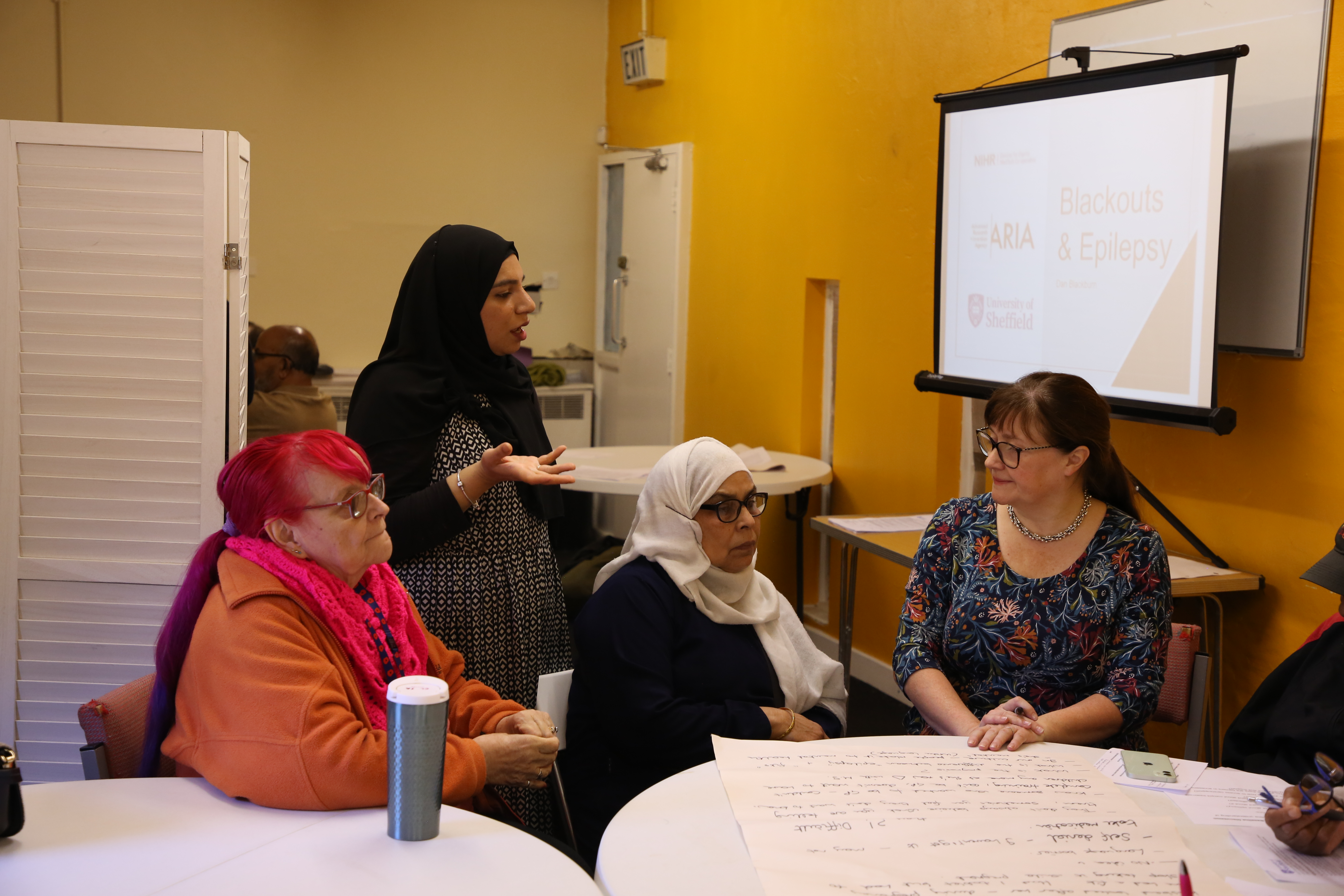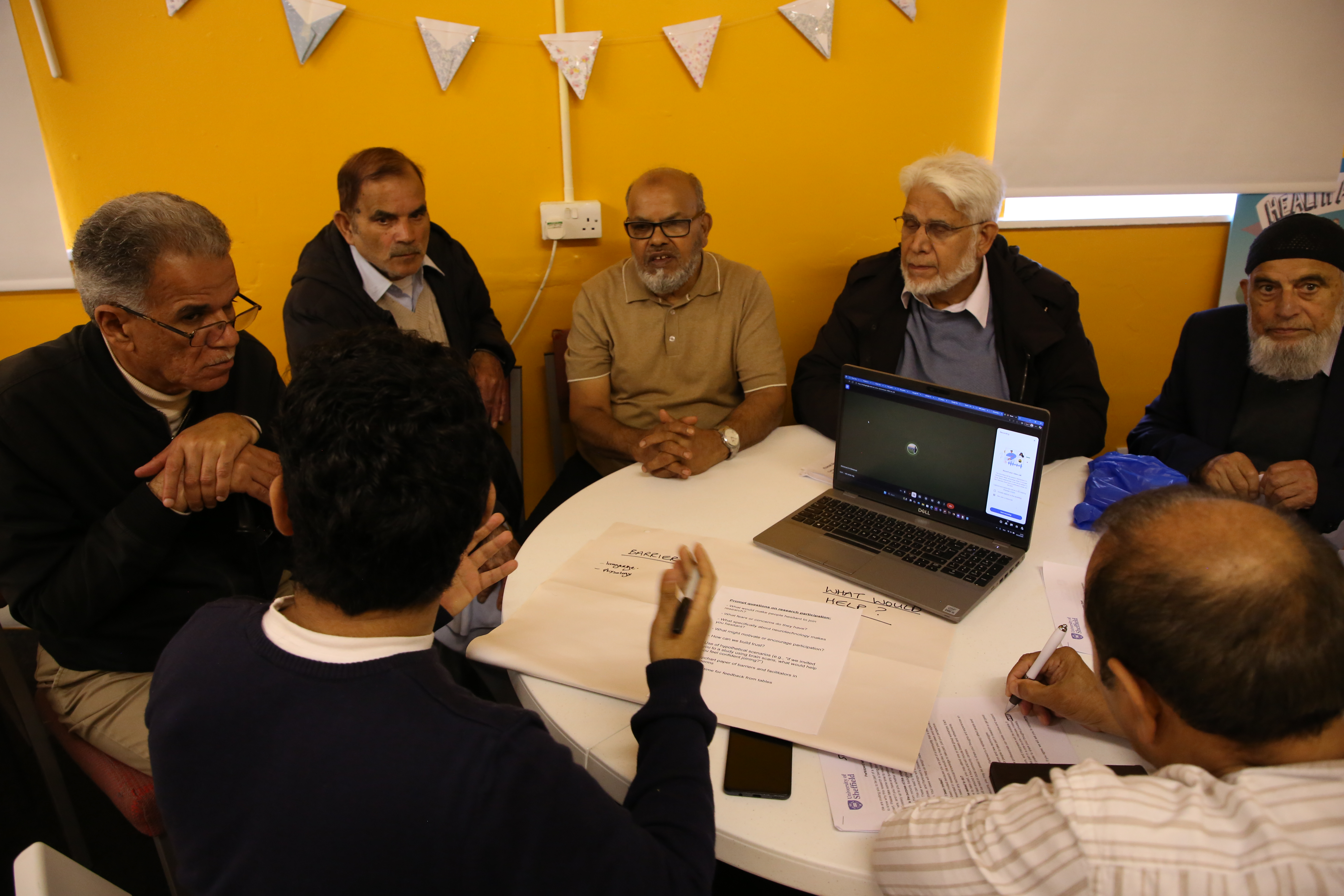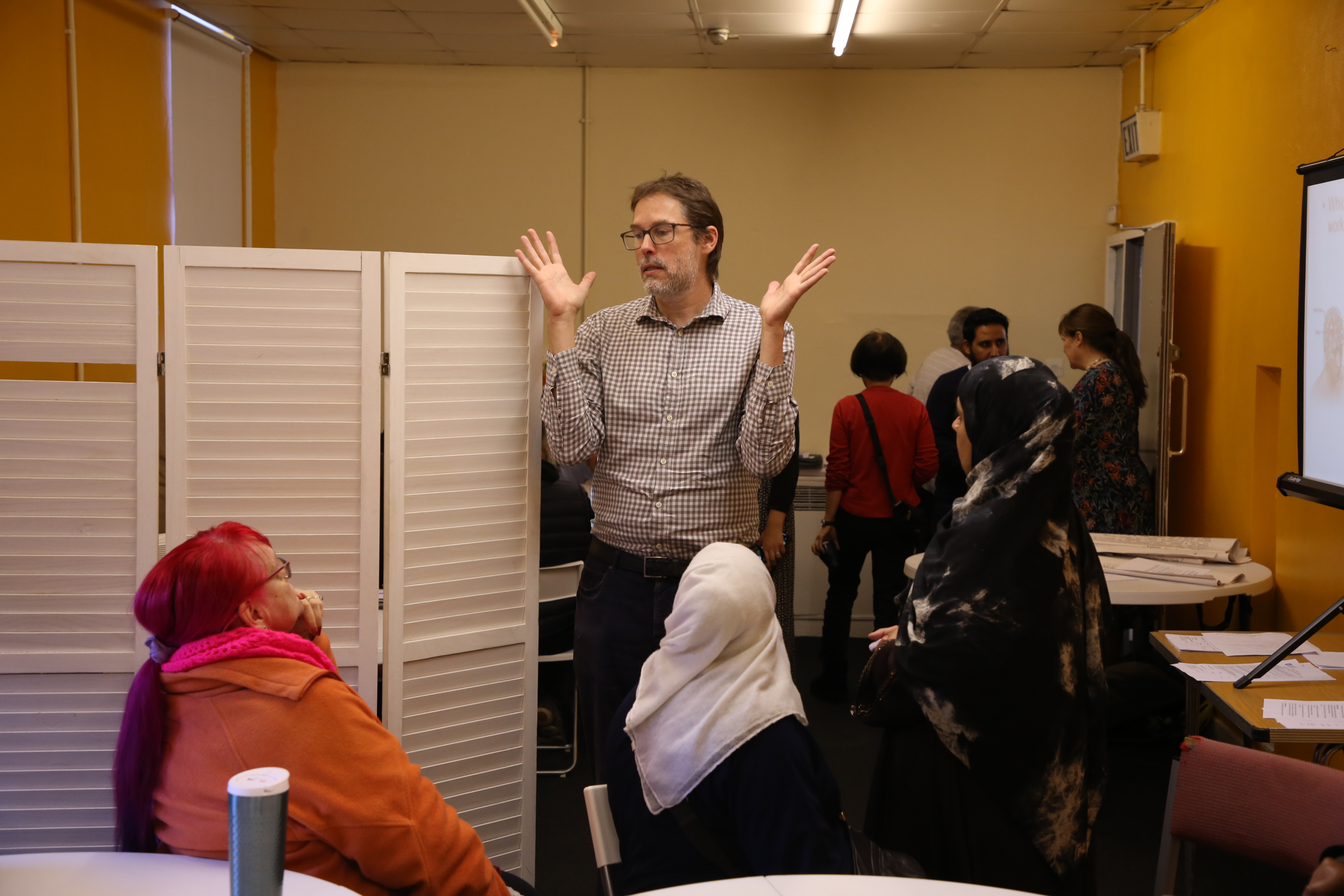We brought researchers and community members together for two practical, conversational workshops. Here’s what we did, and why we’re excited to share the outcomes soon.
Working with the Community
In October 2025 we ran two community workshops in partnership with ShipShape Health and Wellbeing Centre. ShipShape are a local community Hub offering physical and mental health support & practical assistance with food and hardship.
As part of our project aiming to improve inclusive participation in research, the purpose of these workshops were to make space for open conversations to understand the barriers about accessing healthcare and brain research. We focused the first workshop on epilepsy, and the second workshop 2-weeks later on Parkinson’s Disease.

The Workshops
Each day began with a warm welcome and a simple introduction to the project, why we are doing it, and how people can stay involved. We kept it clear that this is the start of an ongoing conversation, not a one-off event.
We opened with a short icebreaker to hear what people already know and how they experience care. That early discussion set the tone and helped us tailor the rest of the session.
We then shared brief, visual talks on each condition provided by Dr Dan Blackburn and Dr Thomas Payne, covering what it is, how diagnosis and support usually work, and where research fits in. We touched on current treatments and new technologies.

We then covered the current treatment landscape, introduced emerging neurotechnologies, and discussed how research drives improvements in care. We walked through real-world scenarios
and explained why healthy volunteers matter. The session finished with group discussions.
We were also honoured to host Shafaq Ali, who shared her story, from noticing first symptoms through to diagnosis of Parksinson’s Disease, treatment, and why research matters to her. You can read more about Shafaq’s story here.
Thanks to ShipShape for keeping us fuelled with coffee and hot food, to our speakers, and everyone else who contributed to the workshops. We are especially grateful to the attendees who shared personal experiences. This input will directly shape how we approach future research to reduce the barriers that some groups face.

What’s Next?
Follow this space for updates on the findings, the next community sessions, and ways to get involved in shaping inclusive brain research.
